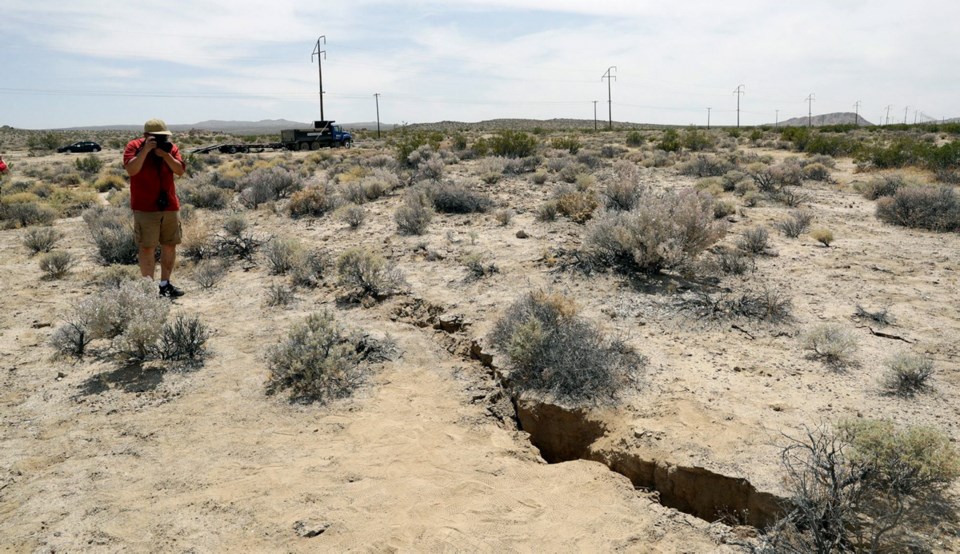We have had so many warnings of the Big One — the massive earthquake that is going to strike Vancouver Island one of these days, maybe tomorrow, or maybe in 500 years — that we tend to ignore the reports of earthquakes elsewhere.
Like the ones in California last week, for example. It would have been hard to get excited, given that the earthquakes did not result in any deaths or major injuries. There was a bit of property damage and a few fires, but other than that, not much to worry about.
Yet bear in mind that the California shakers were strong — a 6.4 magnitude followed by a 7.1 — and hit near rural areas you’ve probably never heard of. Had they hit Los Angeles or San Francisco rather than Ridgecrest and Trona, many more people would care. That’s because many more people would be dead.
Last week’s two earthquakes were the first magnitude 6.0 or larger in Southern California since the 1994 one in Northridge. That 6.9 magnitude temblor destroyed thousands of buildings and killed dozens.
Larger urban areas have more people, more roads, more utilities, more communication systems, so there is much more that can go wrong.
When the Big One hits Vancouver Island, its impact will depend on the location of its epicentre. The people closest to that point will have much more to deal with than people 100 kilometres away. If the hardest-hit area is densely populated, it will take longer for help to reach everyone.
The simple fact is this: You cannot predict when, or where, or how severe the earthquake will be. All that you know is that it is coming.
The usual advice for preparing for an earthquake is simple: Stock up on water, non-perishable food, flashlights, radios, batteries, water, prescriptions, first-aid kits, hygiene items and more water; arrange safe meeting spots with your family members; make copies of important documents.
But that is not all. Another bit of advice could be just as important, and it can pay dividends right away.
Get to know your neighbours. Learn which ones might be able to help you, and which ones you will need to help. It’s better to learn that now, than when it truly is a matter of life and death. If you can work together with a goal of self-sufficiency, everyone will gain. And besides, you might even make new friends.
When the Big One strikes Vancouver Island entire communities — yes, possibly your own — will be seriously affected. The sooner you have a plan to help you respond, the better you will be able to cope.
Of course, all of this has been said before. This time, will we pay attention?



